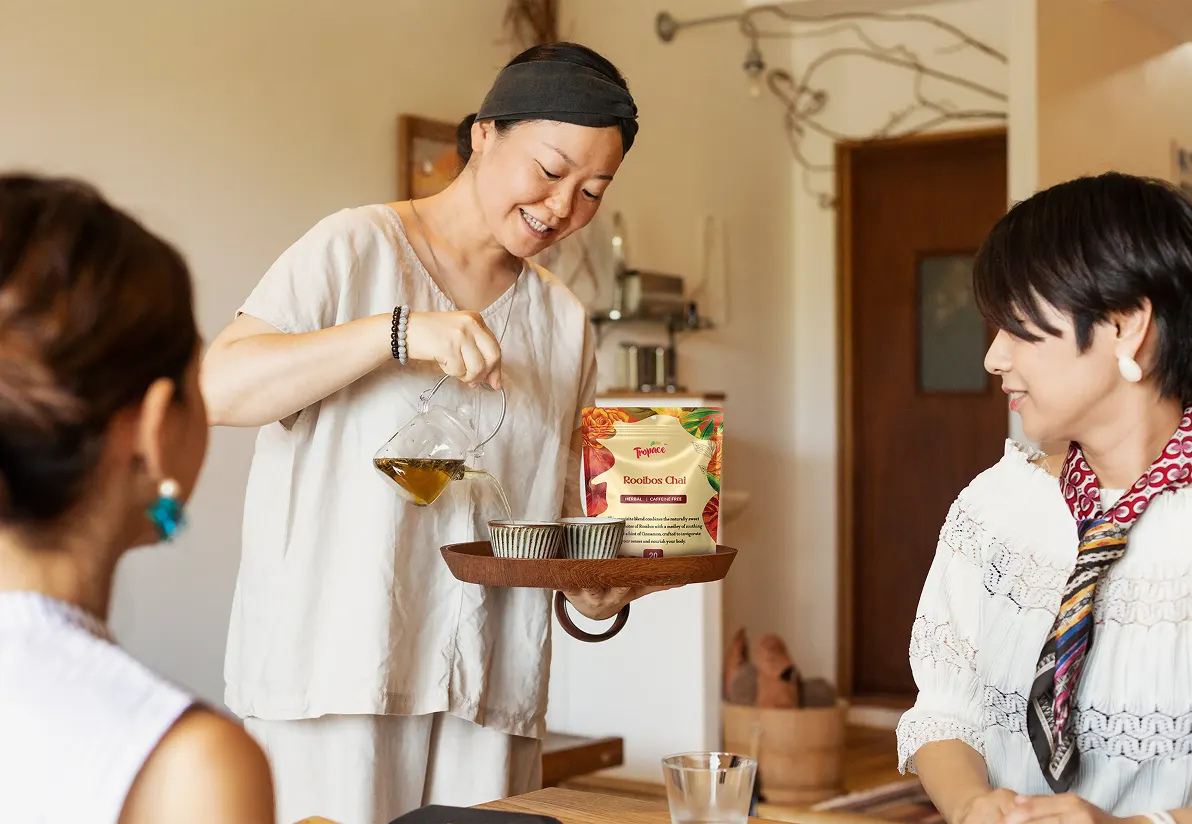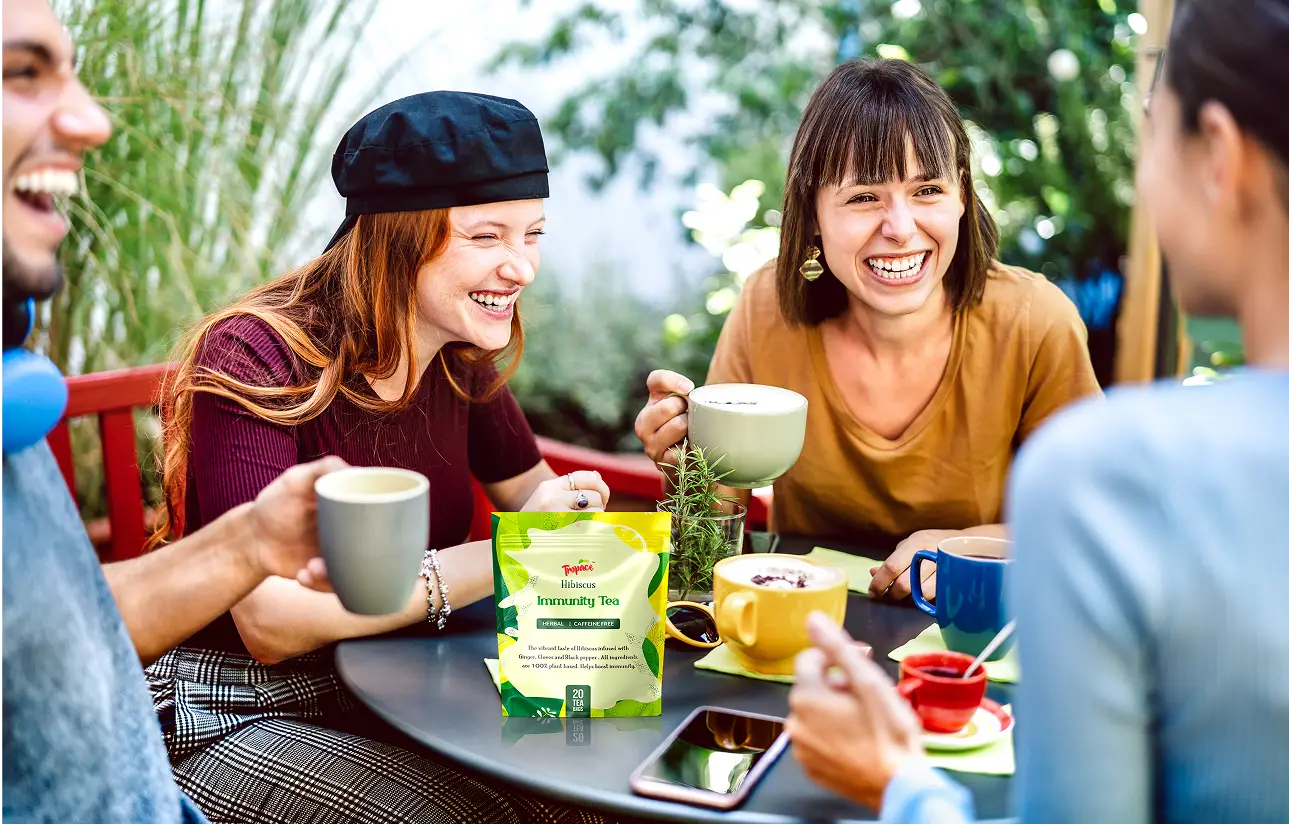What Teas Are Good for New Moms? A Guide to Gentle, Nourishing Sips
Motherhood begins with love and exhaustion. Between night feeds, hormonal shifts, and physical recovery, new moms often feel depleted, both emotionally and physically.
Motherhood begins with love and exhaustion. Between night feeds, hormonal shifts, and physical recovery, new moms often feel depleted, both emotionally and physically.
Rooibos chai is a fusion of South African rooibos and traditional chai spices like cinnamon, cardamom, ginger, and clove. It’s the perfect blend for people who want the warmth and richness of chai, but without the caffeine overload.
In many African households, children grow up sipping warm herbal teas made by their grandmothers. Among these, hibiscus tea, known locally as zobo, stands out for its bright red color, tangy flavor, and immune-boosting properties.
Across the world, there is a powerful shift happening. Consumers are seeking products that don’t just serve the body, but also speak to identity, ancestry, and belonging. They offer more than nutrition. They offer cultural memory, herbal wisdom, and the joy of seeing yourself reflected in what you consume.
We’re trained to believe that energy must come from caffeine. But for many parents, professionals, and wellness seekers, that daily jolt leads to:
Natural lactation tea is a herbal infusion designed to support breast milk production in nursing mothers. Across many African communities, herbal teas have long been used to nourish mothers after childbirth, combining calming rituals with plant-based wisdom.
When you hear “chai,” you might think spice and warmth. When you hear “rooibos,” you think smooth and caffeine-free. Both teas offer unique flavor experiences and wellness benefits, but how do they compare?
Children are explorers. From playing outside to school days filled with contact and curiosity, their growing immune systems are constantly being tested. Supporting that natural defense early with nutrient-rich, caffeine-free herbal teas can help reduce sick days and promote long-term health.
Hibiscus tea is made from the dried petals of the Hibiscus sabdariffa flower, known across West Africa as zobo. It is vibrant red, tart like cranberry, and packed with antioxidants. In many African homes, it is both a celebration drink and a healing tonic. But beyond tradition, hibiscus tea has become globally recognized for its impact on blood pressure and heart health.
African herbal tea is more than a beverage. It is a tradition passed through generations, rooted in the soil, spirit, and science of African healing. Unlike conventional teas made from Camellia sinensis (like green or black tea), African herbal teas are made from indigenous leaves, flowers, bark, seeds, and roots with powerful wellness properties.






Be the first to know when we drop new blends, wellness tips, and exclusive offers, straight from the heart of African tradition to your inbox.
Tropace Company creates delicious and natural drinks inspired by the recipes and methods passed down from our family matriarchs. We offer herbal drinks like hibiscus tea, rooibos tea, and immunity tea, all made from organic ingredients. Our passion for Afrocentrism and wellness drives us to bring you healthy, sustainable beverages that nourish both body and soul.
